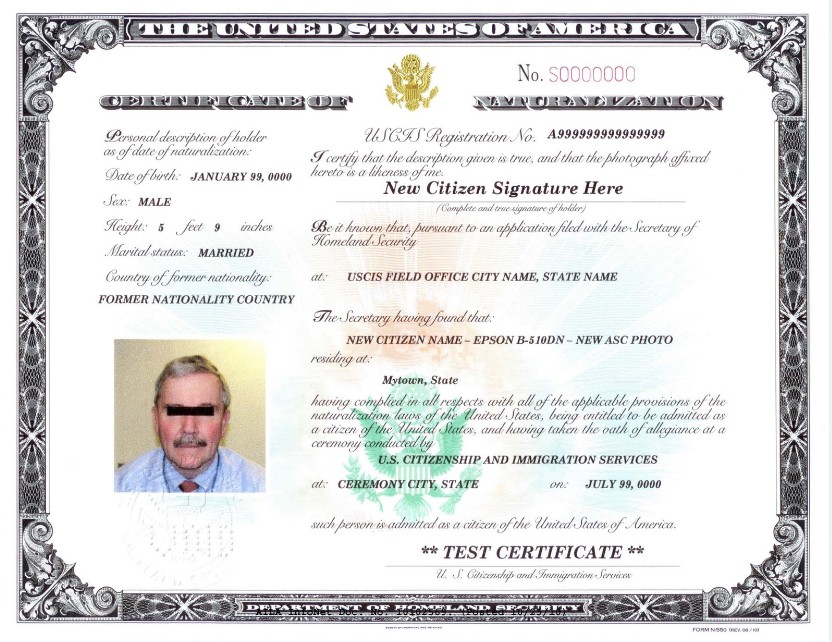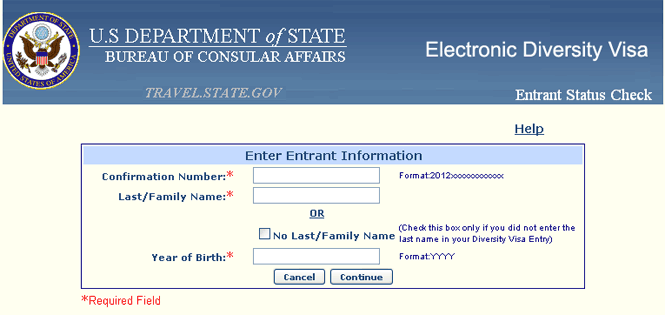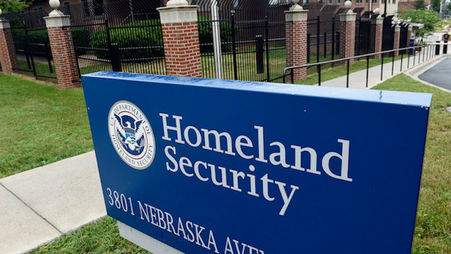9 FAM 402.9-8 REQUIREMENTS FOR E-3 VISAS
9 FAM 402.9-8(A) Background
(CT:VISA-1; 11-18-2015)
(Previous Location: 9 FAM 41.51 N16.1 CT:VISA-1586; 10-14-2010)
a. The E-3 visa classification ("treaty alien in a specialty occupation") was the result of Public Law 109-13, entitled "The Emergency Supplemental Appropriations Act for Defense, the Global War on Terror, and Tsunami Relief, 2005" (May 11, 2005). The new law added paragraph (iii) to INA 101(a)(15)(E), establishing a visa classification for Australians in specialty occupations.
b. The law allows for the temporary entry of Australian professionals to perform services in a “specialty occupation” for a United States employer. The temporary entry of nonimmigrants in specialty occupations is provided for at Section 501 of Public Law 109-13. The law establishes a new category of temporary entry for nonimmigrant professionals, the E-3 category. Unlike the current E-1 and E-2 visas, the E-3 visa is not limited to employment that is directly related to international trade and investment. Subject to the requirements discussed herein, E-3 visa holders are eligible to work for any employer in the United States. Dependent spouses and children accompanying or following to join are also eligible for temporary entry.
c. To qualify for an E-3 visa, an Australian must:
(1) Present to you an approved Labor Condition Application (LCA) issued by the Department of Labor (DOL);
(2) Demonstrate to you that the prospective employment meets the standard of being “specialty occupation employment” (see 9 FAM 402.9-8(E) below);
(3) Show you that the necessary academic qualifications for the job have been met (see 9 FAM 402.9-8(H));
(4) Convince you that the proposed stay in the United States will be temporary (see 9 FAM 402.9-4(C); and
(5) Provide evidence of a license or other official permission to practice in the specialty occupation if required as a condition for the employment sought (see 9 FAM 402.9-8(H)). In certain cases, where such license or other official permission is not required immediately, an alien must demonstrate that he or she will obtain such licensure or permission within a reasonable period of time following admission to the United States.
d. A maximum of 10,500 E-3 visas can be issued annually.
9 FAM 402.9-8(B) What is Needed to Qualify for a Specialty Occupation Visa
(CT:VISA-185; 09-26-2016)
Principals: A treaty alien in a specialty occupation must meet the general academic and occupational requirements for the position pursuant to INA 214(i)(1). In addition to the nonimmigrant visa (NIV) application, the following documentary evidence must be submitted in connection with an application for an E-3 visa:
(1) A completed Form ETA-9035-E, Labor Condition Application for Nonimmigrant Workers (formerly, Labor Condition Application for H-1B Nonimmigrants), certified by the Department of Labor (DOL).
(2) Evidence of academic or other qualifying credentials as required under INA 214(i)(1) and a job offer letter or other documentation from the employer establishing that upon entry into the United States the applicant will be engaged in qualifying work in a specialty occupation and that the alien will be paid the actual or prevailing wage referred to in INA 212(t)(1). A certified copy of the foreign degree and evidence that it is equivalent to the required U.S. degree could be used to satisfy the “qualifying credentials” requirement. Likewise, a certified copy of a U.S. baccalaureate or higher degree, as required by the specialty occupation, would meet the minimum evidentiary standard.
(3) In the absence of an academic or other qualifying credential(s), evidence of education and experience that is equivalent to the required U.S. degree.
(4) Evidence establishing that the applicant’s stay in the United States will be temporary. (See 9 FAM 402.9-4(C) and 9 FAM 402.9-4(H).)
(5) A certified copy of any required license or other official permission to practice the occupation in the state of intended employment if so required or, where licensure is not necessary to commence immediately the intended specialty occupation employment upon admission, evidence that the alien will be obtaining the required license within a reasonable time after admission.
(6) Evidence of payment of the Machine Readable Visa (MRV) fee.
9 FAM 402.9-8(C) Form ETA-9035 Labor Condition Application (LCA) from the Department of Labor (DOL) Required
(CT:VISA-185; 09-26-2016)
a. Filing Form ETA-9035-E: For all prospective E-3 hires, employers must submit a Labor Condition Application (LCA) to the Department of Labor (DOL) containing attestations relating to wages and working conditions.
b. LCAs for E-3 cases must be submitted electronically via the Department's iCERT Portal System. The iCERT Portal System is available at: http://icert.doleta.gov. The only two exceptions for electronic filing are physical disability and lack of internet access preventing the employer from filing electronically. Employers with physical disabilities or lack of internet access preventing them from filing electronic applications may submit a written request for special permission to file their LCAs via U.S. mail. Such requests MUST be made prior to submitting an application by mail and should be addressed to:
Administrator, Office of Foreign Labor Certification
Employment Training Administration
U.S. Department of Labor
Room C-4312
200 Constitution Avenue, NW
Washington, DC 20210
c. The Form ETA-9035 used for requests by mail and Form ETA-9035E used for electronic submissions are the same form. The current ETA-9035/9035E is six to seven pages long. Page 1 (numbered page 1 of 1) includes three attestations for the employer to complete in the electronic filing system. Pages 2-6 (numbered page 1 of 5 through page 5 of 5) contain Sections A through O, and the 7th page is optional for any Addendum to Section G to list additional worksite details.
d. All E-3 LCAs will contain case numbers in the following format: I-203-xxxxx-xxxxxx. All LCAs that were submitted online will display the case number, case status and period of employment on the bottom of each page. Section K on page 4 should contain the signature of the employer. If there is no employer signature, the LCA is not valid for processing and consular staff should 221(g) the case until a signed copy of the LCA has been submitted. In section M of the LCA, the signature block will contain the validity dates of the certification, the Department of Labor’s signature as “Certifying Officer” (not a specific official's name), the determination date, the case number, and the case status as “Certified.” A mailed LCA likely would not have a computer-generated footer at the bottom of the form with the case number, case status, and period of employment. A mailed-in LCA would likely also be completed in a different computer font or contain handwritten information.
e. Acceptance of Form ETA-9035 by Posts: For mailed-in applications, DOL faxes the LCA back to the employer after approval. Applications approved online are presented on-screen to the employer at the completion of the filing process in the form of a PDF/.pdf document. Consequently the applicant will be presenting either the initial faxed LCA, a printed PDF/.pdf document, or a copy of either of these; there will be no “original” document that will be presented. You must check to make sure the approval date of the LCA is later than September 2, 2005 (the effective date of the Department of State's E-3 regulatory publication).
f. Verifying Authenticity of the E-3 LCA: Your acceptance of the LCA certification is discretionary. If you are not satisfied that the LCA being presented is authentic, you should suspend action on the case (INA 221(g)) and verify the LCA with the Department of Labor (DOL).
g. DOL posts html versions of all certified E-3 LCAs on the Labor Certification Registry website. For additional questions concerning the authenticity of a particular LCA, you should send requests to the LCA Help Desk at [email protected]., or by mail to U.S. Department of Labor, Employment and Training Administration, Office of Foreign Labor Certification, Chicago National Processing Center, 11 West Quincy Court, Chicago, IL 60604-2105.
h. Petition Filing with DHS Not Required: An employer of an E-3 treaty alien in a specialty occupation is not required to file a petition with DHS. Instead, a prospective employee will present evidence for classification, including the approved Form ETA-9035-E, directly to you at the time of visa application.
9 FAM 402.9-8(D) Definition of Specialty Occupation
(CT:VISA-185; 09-26-2016)
The E-3 category provides for the issuance of visas solely to E-3 qualifying nationals performing employment within a “specialty occupation.” The definition of “specialty occupation” is one that requires:
(1) A theoretical and practical application of a body of specialized knowledge; and
(2) The attainment of a bachelor’s or higher degree in the specific specialty (or its equivalent) as a minimum for entry into the occupation in the United States. Note: In determining whether an occupation qualifies as a "specialty occupation," follow the definition contained at INA 214(i)(1) for H-1B nonimmigrants and applicable standards and criteria determined by the Department of Homeland Security (DHS) and legacy Immigration and Naturalization Service (legacy INS). See 9 FAM 402.10-5(E).
9 FAM 402.9-8(E) Determining “Specialty Occupation” Qualification
(CT:VISA-185; 09-26-2016)
Although the term “specialty occupation” is specifically defined at INA 214(i)(1), and further elaborated upon in DHS’s regulations (8 CFR 214.2(h)(4)(iii)(A)), consular determinations of what qualifies as a “specialty occupation” will often come down to a judgment call by the adjudicating consular officer. You must determine whether the job itself falls within the definition of “specialty occupation,” and also examine the alien’s qualifications, including his or her education and experience. You should consider the available offer of employment and the information obtained during the interview, and then on the basis of this information, make a reasoned evaluation whether or not the offer of employment is for a “specialty occupation.” Then you must be sure that the applicant has the required degree, or equivalency of experience and education, to adequately perform the stipulated job duties.
9 FAM 402.9-8(F) Referring Questionable Cases to CA/VO/L/A and/or the Kentucky Consular Center (KCC)
(CT:VISA-185; 09-26-2016)
a. Request additional assistance/guidance from CA/VO/L/A if significant doubt remains regarding the E-3 alien’s work experience, or if the proposed employment does not appear to meet the requirements for “specialty occupation” as described above in 9 FAM 402.9-8(E). The Department of Homeland Security's Bureau of U.S. Customs and Immigration Services (USCIS) has significant experience in making "specialty occupation" determinations related to adjudicating H-1B cases, so the advisory opinions division will work closely with USCIS on issues you send in for opinion.
b. If you have concerns about information regarding or provided by the employer (e.g., you doubt that the employer can pay the prevailing wage, or you do not believe the business is large enough to support additional employees), please email KCC at [email protected] with your concerns, providing as much factual detail as possible. KCC will review the information, investigate, and attempt to provide you with information to address those concerns.
9 FAM 402.9-8(G) Intent to Depart Upon Termination of Status
(CT:VISA-1; 11-18-2015)
(Previous Location: 9 FAM 41.51 N16.6 CT:VISA-771; 10-03-2005)
a. Temporary entry for treaty aliens in specialty occupations is the same standard used for treaty traders/investors.
b. The alien’s expression of an unequivocal intent to return when the E-3 status ends is normally sufficient, in the absence of specific evidence that the alien’s intent is to the contrary.
c. The applicant must satisfy you that he or she plans to depart the United States upon termination of status; however, he or she does not need to establish intent to proceed to the United States for a specific temporary period of time nor does an applicant for an E-3 visa need to have a residence in a foreign country that the applicant does not intend to abandon.
d. The alien may sell his or her residence and move all household effects to the United States.
e. An E-3 applicant may be a beneficiary of an immigrant visa (IV) petition filed on his or her behalf.
9 FAM 402.9-8(H) E-3 Licensing Requirements
(CT:VISA-1; 11-18-2015)
(Previous Location: 9 FAM 41.51 N16.7 E-3 CT:VISA-771; 10-03-2005)
a. An E-3 alien must meet academic and occupational requirements, including licensure where appropriate, for admission into the United States in a specialty occupation. If the job requires licensure or other official permission to perform the specialty occupation, the applicant must submit proof of the requisite license or permission before the E-3 visa may be granted. In certain cases, where such a license or other official permission is not immediately required to perform the duties described in the visa application, the alien must show that he or she will obtain such licensure within a reasonable period of time following admission to the United States. However, as illustrated in the example in paragraph b(4) below, in other instances, an alien will be required to present proof of actual licensure or permission to practice prior to visa issuance. In all cases, an alien must show that he or she meets the minimum eligibility requirements to obtain such licensure or sit for such licensure examination (e.g., he or she must have the requisite degree and/or experience). Even when not required to engage in the employment specified in the visa application, a visa applicant may provide proof of licensure to practice in a given profession in the United States together with a job offer letter, or other documentation, in support of an application for an E-3 visa.
b. The following examples are illustrative:
(1) An alien is seeking an E-3 visa in order to work as a law clerk at a U.S.-based law firm. The alien may, if otherwise eligible, be granted an E-3 visa if it can be shown that the position of unlicensed law clerk is a specialty occupation, even if he or she has not been admitted to the bar.
(2) An alien has a job offer from a law firm promising him or her a position as an associate if the alien passes the bar exam. The application indicates that the position in question meets the definition of a specialty occupation. The alien may apply for an E-3 visa even if he or she will not be immediately employed in the position offered, but will be studying for the bar examination upon admission to the United States. You may issue the visa if you are satisfied that the alien will be taking steps to obtain bar admission within a reasonable period of time following admission to the United States. What constitutes a reasonable period of time will depend on the specific facts presented, such as licensure examination schedules and bar preparation course schedules.
(3) An alien does not have a job offer, but wishes to study for the bar upon admission to the United States with the hope of finding a position at a United States-based law firm. The alien would not be eligible for E-3 classification, since he or she would not be coming to work in a specialty occupation. This person would be required to obtain another type of visa, such as a B-1, in order to study for the bar in this country.
(4) An alien has an offer for employer with a law firm as a litigator, and is to begin working within two weeks of entry into the United States. The applicant must demonstrate that he or she has been admitted to the appropriate bar, or otherwise has obtained permission from the respective jurisdiction or jurisdictions where he or she intends to practice to make court appearances.
9 FAM 402.9-8(I) Numerical Limitation on E-3 Visas
(CT:VISA-185; 09-26-2016)
a. Only E-3 principals who are initially being issued E-3 visas for the first time, or who are otherwise obtaining E-3 status (in the United States) for the first time,are subject to the 10,500 annual numerical limitation provisions of INA 214(g)(11)(B). Consequently, spouses and children of E-3 principals, as well as returning E-3 principals who are being issued new E-3 visas for continuing employment with the original employer, are exempt from the annual numerical limit (see b. and c. immediately below).
b. An E-3 principal who is applying for a new visa following the expiration of the initial E-3 visa, or who is applying for a visa after initially obtaining E-3 status in the United States, is not subject to the annual E-3 numerical limit, provided it is established to your satisfaction that there has been uninterrupted continuity of employment. “Uninterrupted continuity of employment” means that the applicant has worked, and continues to work, for the U.S.-based employer who submitted the original Labor Condition Application (LCA) and offer of employment. To ensure that such applicants are not counted against any subsequent numerical limit, returning E-3 principals will be identified by the visa code “E-3R” (with “R” representing the status of “returning”).
c. To ensure that the spouse and children of E-3 principals are not counted against the numerical limit, they will be identified by the visa code “E-3D” (with “D” representing the status of “dependent”).
d. At the end of each fiscal year, any unused E-3 numbers are forfeited; such visa numbers do not carry over to the next fiscal year.
e. The Department of State will keep count of the number of E-3 visas issued, and of changes of status to E-3 in the United States as reported by the Department of Homeland Security (DHS). If it appears that the 10,500 annual numerical limits will be reached in any fiscal year, the Department of State will instruct posts to cease E-3 issuances for that fiscal year.
9 FAM 402.9-8(J) Part-Time Employment by E-3 Applicants
(CT:VISA-185; 09-26-2016)
An E-3 worker may work full or part-time and remain in status based upon the attestations made on the LCA. Section B.4 on the LCA provides the option to request part time employment and DOL approves LCAs for part-time employment. Although nothing is specifically stated in the law/regulation about full-time employment for E-3s, you will need to evaluate the public charge ramifications for any E-3 applicant planning on coming to the United States as a part-time employee.
9 FAM 402.9-8(K) Applicants with Multiple LCAs
(CT:VISA-185; 09-26-2016)
a. If an applicant presents more than one valid LCA, consular officers should evaluate each LCA on its own merits. The applicant will have to qualify for each LCA separately, and each proposed employment situation must overcome public charge concerns on its own. Clearly indicate in the case remarks which LCAs and positions the applicant qualifies for.
b. Multiple annotations: You should annotate the visa with the employer's name, LCA case number and LCA issuance date for each employer. You may need to use abbreviations in order to make more than one set of annotations fit onto the visa foil. If there is not enough room on the visa foils to add all of the required annotations contact VO/F for additional guidance.
c. If an applicant presents multiple LCAs for E-3 and E-3R (returning E-3) positions at the same time, and is approved for multiple positions, only one visa should be issued. The visa should be issued for an E-3 position to ensure that the visa is counted towards the annual numerical limit. The visa should be annotated with the employer's name, LCA case number and LCA issuance date for each E-3 position AND the employer's name, LCA case number and LCA issuance date for each E-3R position. If there is not enough room on the visa foils to add all of the required annotations contact VO/F for additional guidance.
9 FAM 402.9-8(L) Considerations in Processing E-3 Visas
(CT:VISA-185; 09-26-2016)
a. Validity of Issued Visa: The validity of the visa should not exceed the validity period of the LCA. The Department of State and DHS have agreed to a 24-month maximum validity period for E-3 visas.
b. Initial Authorized Period of Stay for E-3 Applicants: E-3 applicants are admitted for a two-year period renewable indefinitely, provided the alien is able to demonstrate that he or she does not intend to remain or work permanently in the United States.
c. Fees: Other than the normal visa-related Machine Readable Visa (MRV) fees, there is no other fee associated with the issuance of an E-3 visa.
d. Reports of Cancelled or Revoked E-3 Visas: In the event an E-3 visa is cancelled or revoked prior to the applicant’s entry into the United States, a report must be sent to CA/VO/DO/I explaining the circumstances attendant to the non-use of the E-3 number. In cases where the E-3 number has not been used, it will be added back into the remaining pool of unused E-3 visa numbers for that fiscal year.
e. Annotation of E-3 Visas: Annotate E-3 visas of the principal applicant with the name of the employer, the ETA case number (found at the bottom of each page of the Form ETA-9035), and the LCA’s issuance date (the "Determination Date" listed in part M. on page 5 of the Form ETA-9035.) Annotate E-3D visas for derivatives of the principal applicant with the name of the principal applicant, the name of the employer, the ETA case number and the LCA's issuance date.
9 FAM 402.9-8(M) Special Note about H-1B Petitions
(CT:VISA-185; 09-26-2016)
When the H-1B numerical cap is reached before the end of the fiscal year, it is likely that there will be numerous Australian H-1B applicants who will have approved Labor Condition Application’s (LCA) but whose petitions for H-1B status are returned unapproved by the DHS for lack of an available H-1B visa number. Currently, you are not permitted to accept LCAs approved based upon H-1B-related offers of employment. Rather, the United States employer must submit a new LCA request to DOL and receive a separate E-3-based LCA approval for any employee possessing a previously approved H-1B-based LCA.
9 FAM 402.9-9 SPOUSE AND CHILDREN OF E VISA ALIENS
(CT:VISA-185; 09-26-2016)
a. Entitled to Derivative Status: The spouse and children of an E visa alien accompanying or following to join the principal alien are entitled to derivative status in the same classification as the principal alien. The nationality of the spouse and children of an E visa applicant is not material. The spouse and children of an E visa alien receive the same visa validity and number of entries, and are required to pay the same reciprocity fee, if applicable, as the principal alien, as listed in the reciprocity schedule for the principal alien's country of nationality.
b. Spouses and Children: To establish qualification for E-3 classification as the spouse or child of an E-3 alien, you may accept whatever reasonable evidence is persuasive to establish the required qualifying relationship. The presentation of a certified copy of a marriage or birth certificate is not mandatory if you are otherwise satisfied that the necessary relationship actually exists.
c. Spouse and Children of E-3 Aliens Not Subject to Numerical Limitation: The spouse and children of E-3 principals are classifiable as E-3’s, using the visa code E-3D. They are not counted against the 10,500 annual numerical limitation described at INA 214(g)(11)(B).
d. Employment by Spouse of E Visa Aliens: INA 214(e)(6) permits the spouse (but not other dependents) of a principal E nonimmigrant to engage in employment in the United States. The spouse of a qualified E nonimmigrant may, upon admission to the United States, apply with the DHS for an employment authorization document, which an employer could use to verify the spouse’s employment eligibility. Such spousal employment may be in a position other than a specialty occupation.
See at:
https://fam.state.gov/FAM/09FAM/09FAM040209.html






 RSS Feed
RSS Feed